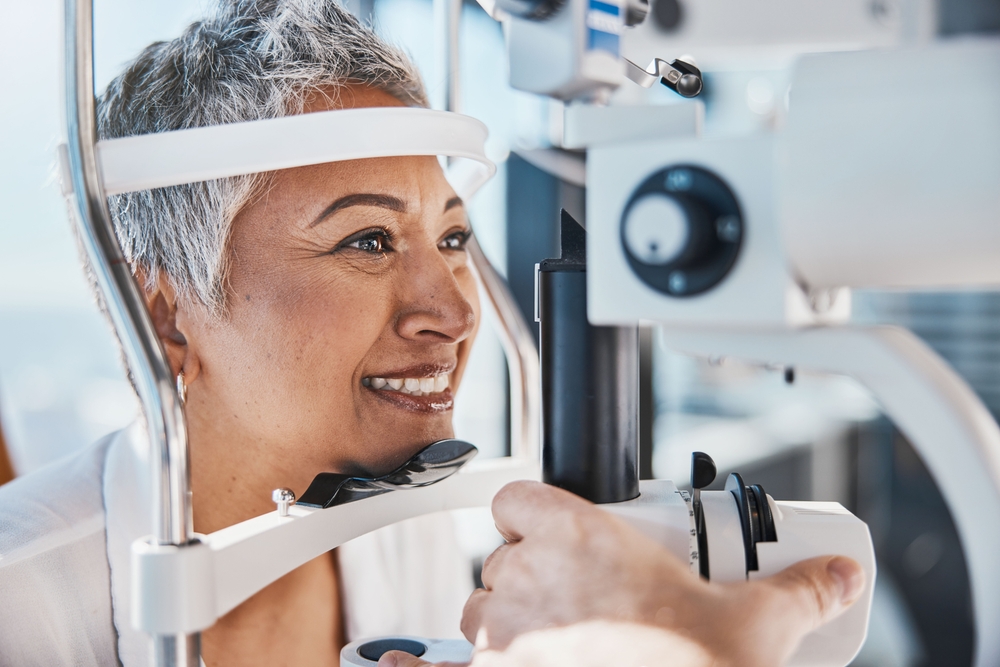Eye exams 101: Why you need one even if your vision is 20/20
Eye exams are not only for people who need glasses or contacts. They’re not just for older people or those with problems like an eye injury or condition like pinkeye.
The truth is, everyone needs a regular eye exam. For example, even infants around about the age of 6 months or so should see an eye care professional to be evaluated for general eye health, normal vision and especially strabismus (sometimes called crossed eyes) before the condition can cause long-term problems as the child grows. Other conditions your eye doctor can check for include:
Older adults, who are at higher risk for age-related macular degeneration or ARMD should also have regular eye exams. The macula is the central portion of the retina. The retina is the light-sensitive area at the back of the eye. It collects light signals and transmits them through the optic nerve to the brain. The macula is where the clearest and sharpest vision occurs. When damaged by ARMD, the entire central part of the visual field may be very blurry or even missing altogether, like a doughnut hole where vision should be. When caught early enough, this macular damage may be stopped or reduced, preserving vision.
Glaucoma
Caused by typically painless, excessive pressure within the eye, glaucoma generally produces no symptoms. Over time, the high pressure within the eye damages the optic nerve.
Glaucoma can cause partial or even total blindness.
Your eye care professional will always check your internal eye pressure at every visit using a special measuring device. The procedure is painless.
Eyes Change over Time
Even those who think they can see fine may not notice subtle changes in vision and visual acuity. Your eye doctor will check to be sure your vision is within the normal range. You may need glasses and not realize it. This is especially true for children.
People over 40 may notice that their close-up vision is blurry, but their distance vision is still good. This is called presbyopia and is a normal part of aging. Your eye doctor can prescribe corrective lenses for reading and other close-up situations, so you can see clearly again.
Your Eyes can Reflect your General Health
Did you know that diseases like high blood pressure and diabetes cause changes within the eye? Both can damage the retina’s delicate blood vessels. In fact, in the case of diabetes, damage to the retina is called diabetic retinopathy. If this damage isn’t caught early, vision can be permanently and significantly lost. Diabetic retinopathy is a leading cause of blindness.
Dilated Eye Exam
Your eye doctor can see internal eye damage in what is called a dilated eye exam. Drops to dilate the pupils are used to allow the doctor to see deep within the eye. Any problems can be caught early. For example, medication to control high blood pressure or to keep blood sugar levels within normal range may prevent or at least slow any further eye damage.
Your vision is priceless. Protect it with regular eye exams as recommended by your eye care professional.
Schedule a Consultation
The doctors here at Eye Care Physicians and Surgeons of New Jersey are ophthalmologists offering a wide range of quality eye care services. Ophthalmologists are medical doctors who specialize in conditions of the eye.
You can contact their professional staff here to learn more or to make an appointment. Eye Care Physicians and Surgeons of New Jersey is currently welcoming new patients.



